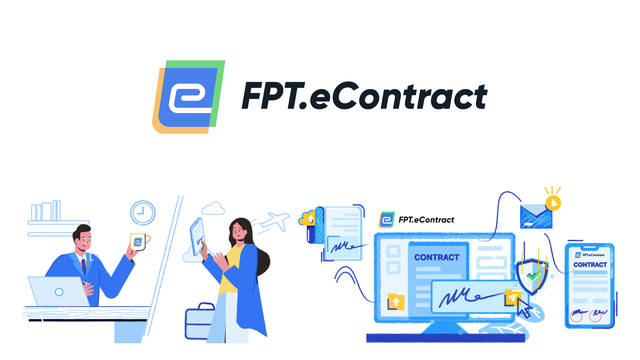Secure e-contracts: Identity is key
Electronic contracts are becoming increasingly prevalent in business transactions. However, a critical factor in ensuring their legal validity and security is identification of signatories during the e-signing process. Verifying the identity of the contract signatory is not only a legal requirement but also plays a crucial role in preventing the risk of fraud and disputes.
Identification and digital signatures: An inseparable link
In electronic contracts, digital signatures are commonly used to confirm identity and guarantee the information integrity. However, a digital signature holds value only when it is securely tied to the identity of the individual or organization signing the document. This is particularly important in the digital age, where the potential for identity fraud and illegal transactions has become increasingly sophisticated.
Electronic identification involves verifying the signer identity through advanced technologies like eKYC (Electronic Know Your Customer). This process ensures that the transaction participant is verified at the time of signing, preventing signature forgery and confirming that the signer is indeed the intended party. According to the Global Cybersecurity Alliance, electronic contracts lacking identity verification increase the risk of fraud by 40% compared to those with comprehensive identification.
The importance of identification in electronic transactions
Without clear identification and a verified digital signature, an electronic contract is exposed to significant legal risks. In case of a dispute, determining the real signer becomes a complex challenge, not only complicating the resolution process but also giving parties room to evade responsibility. Statistics from the Ministry of Justice indicate that 60% of disputes involving electronic contracts stem from the inability to verify the signer’s identity at the time of signing.
Moreover, contracts without proper identification may be rejected by financial institutions, banks, and state agencies. This can render the contract invalid, leading to severe financial and reputational consequences for involved parties. The International Association for Trusted Blockchain Applications – INATBA reports that about 35% of electronic contracts lacking clear identity verification are denied recognition by third parties.
FPT.eContract solution: Ensuring security in identification and digital signatures
In this context, FPT.eContract is a solution addressing issues related to identification and digital signatures in electronic contracts. The solution is developed to provide an electronic contract signing platform which is secure, efficient and fully compliant with legal requirements.
One of the key features of FPT.eContract is its adoption of eKYC technology to verify the identity of signatories at the time of transaction. This ensures that the signer is indeed the intended party, eliminating the risks of fraud and signature forgery. For B2C transactions, FPT.eContract processes over 4 million personally identifiable contracts annually, providing transparency and security for signatories.
For B2B transactions, FPT.eContract integrates IDCheck technology, which validates digital certificates and signatures on documents. This guarantees that electronic contracts are not only legally binding but also recognized by third parties, including banks and state agencies, offering businesses greater confidence in their transactions.
Identity and the Law: Strengthening the legal value of electronic contracts
According to the Law on E-Transactions 2005 and Decree No. 130/2018/ND-CP on managing and using digital signatures, digital signatures are only legally valid when linked to clear identification of the signer. This not only ensures transparency in electronic transactions but also protects the rights of all parties in case of disputes.
FPT.eContract not only adheres to these legal standards, but also integrates with the Vietnam Electronic Contract Development Axis (CeCA) implemented by the Ministry of Industry and Trade. This integration ensures electronic contracts are officially verified and carry nationwide legal value. Contracts signed via FPT.eContract, therefore, are accepted by state agencies and major financial institutions, such as banks and notaries, safeguarding the rights and obligations of the involved parties.
Adopting solutions like FPT.eContract not only guarantees the legal validity of electronic contracts but also delivers significant economic benefits for businesses. According to a report by FPT IS, businesses using FPT.eContract save up to 70% of the time and 30% of the costs associated with contract signing and management. The solution has become the preferred method for enhancing performance and optimizing the electronic contract process in more than 1,000 major enterprises in Vietnam, including Vinamilk, Samsung, Unilever, and Ford Vietnam.
Identification in electronic contracts is not just a technical requirement but a critical legal obligation to ensure the safety and transparency of electronic transactions. Verifying the signatory’s identity at the time of signing is the most effective way to prevent fraud and disputes, protecting the rights of all parties involved.
The FPT.eContract solution not only offers a secure and efficient platform for electronic contract signing, but also helps businesses comply with current legal regulations. With cutting-edge technologies like eKYC and IDCheck, FPT.eContract guarantees that every electronic transaction is legally valid and fully secure, unlocking a new era for digital commerce.
| Exclusive Article by FPT IS Technology Expert Đào Quỳnh Thu Project Manager for Electronic Signing Solution Development, FPT IS Co., Ltd |















